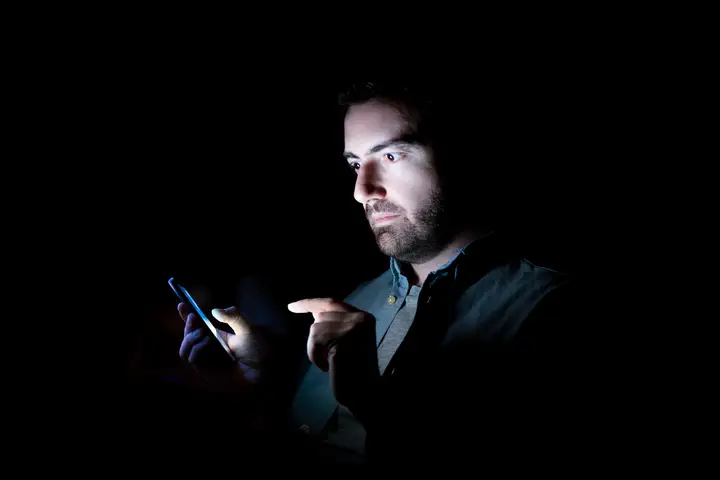Studies found that participants with diagnosed ADHD who play video games for 25 minutes each day for a month may show an exceptional change in improving some of the ADHD symptoms. Logically, adults and children engage deeply in interesting games. Historically video games have been seen not in a positive way when it comes to mental health.
Sufferers from ADHD are finding themselves playing extensive hours during their childhood, and teenage period, but this behavior may also continue in their adult life. Video games are an easily accessible source of stimulation for the ADHD brain. Therefore, it is understandable why this group are tending to spend more time playing video games, in particular, fast-paced video games such as FPS, RPG, and Esports games.
Recently, there's been a change in perception, about how video games may be used towards improving some ADHD symptoms. For example, FDA permits the marketing of the first game-based digital therapeutic to improve attention function in children ages 8-12 years old with ADHD. The video game is called EndeavorRx. This needs to be prescribed by a professional, and it can be used only by the patient that already has an established diagnosis of ADHD.
The future
Without a doubt, we are going to see similar products become available considering the recent advances in artificial intelligence and quantum computing. The speed of developing such clinical products depends on the ability to build evidence-based research and attract innovative developers. Hopefully, a similar resource will become available for Adults and Teens with ADHD, and this will be definitely covered on the adhdspecialist blog.
But how about the existing popular video games, can they be adapted in becoming helpful in improving or monitoring the symptoms of ADHD?
1) Minecraft
Minecraft is the no.1 sandbox video game in the market. Players immerse in randomly created spheres where they don't have supplies initially. This video game assists players to boost their planning abilities because it requires finishing tasks such as shelter crafting and supplies collection in a given time duration. The amazing thing about this game is that adults learn valuable skills mainly communication expertise. It can also teach them how they can express themselves in a fun way. Moreover, it allows adults and their companions to play on custom servers, or encourage the development of complex systems. Knowledge about the use of these servers can potentially develop skills for lifetime jobs, particularly in the field of telecommunication. " Minecraft has sold more than 238 million copies, making it the most-sold video game of all time "
2) Starcraft II Wings of Liberty
One of the best, if not the best strategy games perhaps more popular amongst the adult population. This popular video game was launched initially in 1998 and became one of the best-selling titles in the 2000s. I would expect adults in their 30s and 40s to remember this game and the challenge of harvesting resources, and producing units at optimal efficiency while planning defense or base invasion. The game remained popular over the years, developing a cult-like following, with tournaments offering prizes in the region of hundreds of thousands. To be successful in this game, the player needs to improve their attention, planning abilities, and situational awareness. This game is now FREE! StarCraft II Official Game Site (starcraft2.com)
3) Guitar Hero
Guitar Hero is designed with the mindset of using a prop instrument, such as a plastic guitar in playing music using the Xbox, Playstation, and Nintendo. It requires persistent attention and a good executive function in following the instructions and finishing the tasks. It sharps the conceptual and intellectual mindset with the focus ability of the player. Because this video game needs to learn different types of patterns to play music. A Guitar-shaped plastic controller is used simply to exhilarate adults or teens to play favorite musical instruments using learned patterns. So they feel like pop stars at the same time unintentionally becoming better at maintaining focus, memorizing patterns, and improving concentration, as they learn new songs.
Conclusion and Key Points:
Regardless of the future, there is hope for mental health to benefit from the positive use of technology. This can potentially reach more people, at an affordable cost, while emphasizing the need for sustainability and reduction of the carbon footprint. Video games already have an established infrastructure, and fanbase, and they are recognized by most as fun engaging activities.
It is encouraging the FDA to approve the use of a purpose-built video game, in improving the symptoms of ADHD as this opens the door for developers. This also sets an example that video games are not only detrimental to mental health, or "a waste" and they may have a role to deliver positive healthcare outcomes. Not to mention the entertainment aspect that video games provide as this is a subject for another topic.
Like any activity when done to extremes, it can become detrimental to our health, quality of life, and wellbeing. The World Health Organization decided for the first time in the ICD-11 "The global standard for diagnostic information" to describe gaming as a disorder, falling under addictive behaviors.
Gaming disorder is defined in the 11th Revision of the International Classification of Diseases (ICD-11) as a pattern of gaming behavior (“digital-gaming” or “video-gaming”) characterized by impaired control over gaming, increasing priority given to gaming over other activities to the extent that gaming takes precedence over other interests and daily activities, and continuation or escalation of gaming despite the occurrence of negative consequences.
We need further evidence and quality research to understand the mechanism of action, side effects, and the efficiency of digital tools in providing scalable mental health solutions. A cautious approach needs to take place when implementing new technologies, however, this shouldn't become a barrier to exploring the potential of technology use in mental health.
ADHD Specialist support in London and U.K
Struggling with ADHD and drawn to video games? Get a private assessment with a London psychiatrist specialising in ADHD and having an interest in gaming. Whether you're in London or in the U.K, we may be able to guide in your ADHD journey. Our clinic offers in-depth 2.5-hour private assessments for accurate diagnosis and holistic treatment. Book your appointment today!
Explore our assessment process and book your appointment.
References for further reading
Addictive behaviours: Gaming disorder (who.int)
Disclaimer: The information is not intended nor implied to be a substitute for professional medical advice, diagnosis or treatment. All content, and information, contained in this article is for general information purposes only and does not replace a consultation with your own doctor/health professional
.svg)
.svg)





.svg)






